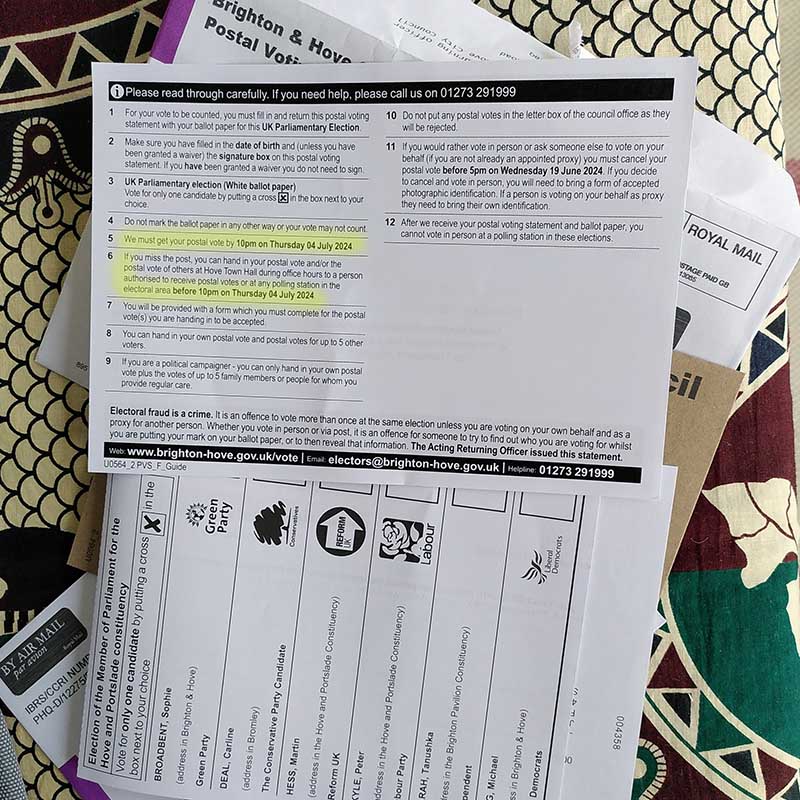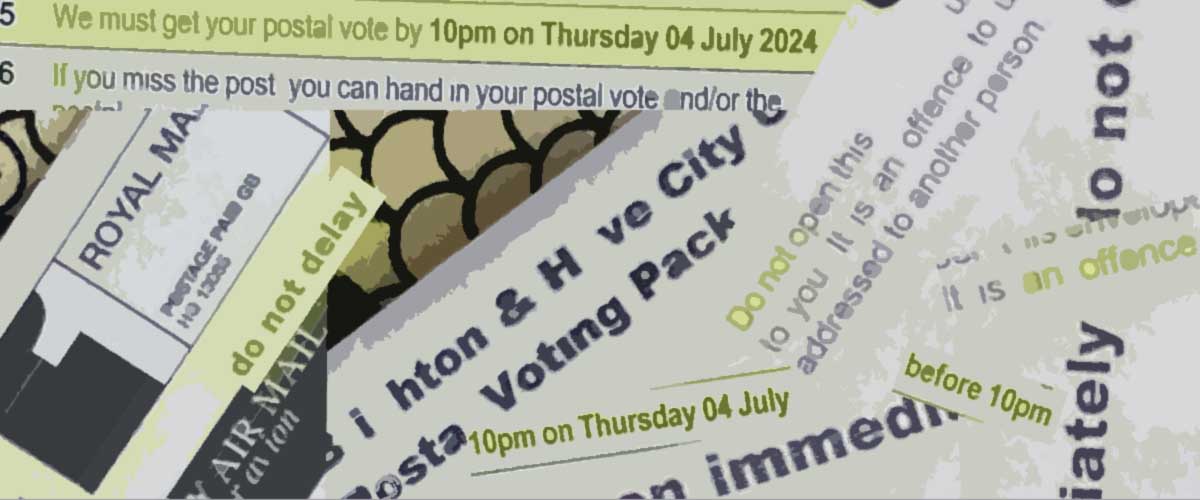I don’t write much about politics in this blog. A little in 2010 after the British electorate gave the UK it’s first hung parliament in 36 years. A little more in 2016 when the Brexit referendum took place. The time has come around again, and my melody has one similar theme – the electoral system and my dis/enfranchisement.
The British political system won’t let me go
It’s been 42 years since I last lived in the UK. You’d be well within reason arguing, after all this time, I should stop kicking up a fuss and concentrate on the voting options and political array I face here in Sweden. But it’s not just me who can’t let go. The British political system won’t let me be.
In 1982 when I first left home to work abroad, I was ignorant of the British electoral system as it applied to ex-pat Brits. I was working in Sofia, in Bulgaria and there was general election coming up back home. In June 1983, Margaret Thatcher’s government went to the polls in search of its second mandate. If I could register a protest, I was determined to do so.
Earlier in the spring, friends among the foreigners working for the Bulgarian Ministry of Education, who lived in the same building where I lived, had voted in their own national elections. There was a Finnish election, I remember, and one in Norway. The year before there had been elections in Sweden and the USA. To vote, people had gone to their embassies in Sofia. So I took myself off to the British embassy to ask how to go about casting my own vote.
The diplomat I talked with laughed at me. Diplomats got to vote, because they were technically still on British territory. Everyone else was disenfranchised by virtue of living abroad.
I was disappointed, but at least I knew the score now. Until the second Thatcher government changed the rules.
Overseas elector for 5 years
In 1985, the the Representation of the People Act introduced the concept of “overseas elector” to the British system. Anyone who had been registered as a British voter in a British constituency, but had left the country for up to 5 years, would get a vote. That included me in 1985 and still just, barely, included me at the time the next general election in 1987.
I went through the rigmarole of making sure I had a vote. At the time I was living in Sweden, in Gothenburg. There was still a British Consulate in Gothenburg at the time. I remember noting the address, thinking I’d have to go there to cast my vote.
Not a bit of it. I had a vote, but I had to cast it in the constituency where I was last registered. I wouldn’t be allowed to do this by post. I’d have to give my vote to a proxy. Someone still living in the constituency who could cast a vote on my behalf.

Gran votes
The only person I was still in touch with who satisfied these rules was my 86 year old grandmother.
Gran was delighted. Even the requirement for her to cast my vote in a different place from where she cast her own only added extra sauce. She caught a taxi – a taxi! – across town.
But she wasn’t going to vote tactically for the centre-left SDP candidate as I wanted. Oh no! In true blue Tory Hove, Gran voted as she had since she herself got the vote in 1929. She voted for Labour. Twice. And she was very pleased to do so. (It made no difference. The Tory MP Tim Sainsbury – that family – was returned with 58,8% of the vote. Labour, as usual, came a distant third.)
Margaret Thatcher’s ghastly reign was extended another 5 years with another whopping Parliamentary majority.
20 years
Maybe the majority of the ex-pat vote helped them. The Tories certainly thought so. They chose to change the rules again. The period of time you were allowed to be abroad and still keep your vote was extended to 20 years.
It was all academic for me. By the time of the next general election in 1991, Gran was in no state to traipse across Hove to deliver my vote for me. I chose not to go through the rigmarole of registering to vote, and the following year Gran died.
But my vote wasn’t called for in 1997 when Tony Blair and his New Labour crushed the Conservatives. Even Hove – of all places – returned a Labour MP! Gran would have been happy to see that.
By 2005 the ex-pat vote option had been cut back to 15 years, but I was already disenfranchised again under the 20 year rule. I didn’t even notice the change.
Brexit – the great disenfranchisement
Then came the Brexit Referendum. For the first time in a long time, the British government was proposing something that would directly affect me as a citizen, even though I’d lived abroad for so many years. And I had no right to participate. I was disenfranchised.
I wasn’t the only one upset by this. Nobody really knows how many Brits living in the EU were unable to participate in the June 2016 referendum, but it was certainly in the hunderds of thousands. Maybe millions. People who had taken advantage of EU mobility to move and live across Europe, people who had started families and were living with their EU spouses, people who had retired.
Well, the vote went the way it went and we were not just disenfranchised, we were deprived of our European citizenship too.
Following the Brexit vote, a campaign sponsored by British in Europe and fronted by retired WW2 veteran Harry Shindler bore fruit. The process was slow, but at the beginning of 2024 all British citizens livign abroad got “a vote for life”.
So I was enfranchised again. I decided I would use my vote to help rid Britain of another, even worse Tory government. If I could.
21st century meets 19th century

Things had changed. Marginally. I still had to cast a vote in the last constituency where I was registered – Hove, actually – but I wouldn’t need a a proxy voter to vote for me. I registered on-line. Very 21st Century. It went very smoothly, but then came the crunch.
My vote would still have to be cast on a paper ballot, which I would receive and return by post.
The 21st century ran full tilt into the 19th.
The ballot papers were not posted until “around two weeks before polling day”. So nicely vague, that. The ballots had to be returned – by post of course – “to the (Acting) Returning Officer before the close of poll (i.e. 10pm on polling day).” [Quotes link.]
You know when I got my ballot papers? Midday on 3rd July. There was not a snowball’s chance in hell that the post would return my ballot before “10pm on polling day”.
Disenfranchised again.
Ah, well, the election results were very satisfactory even without my vote. In Hove the Tories were beaten into third place when the Greens placed second after Labour.
I wonder what’ll happen next. I’ll give you an update. Maybe. In 8-10 years!




